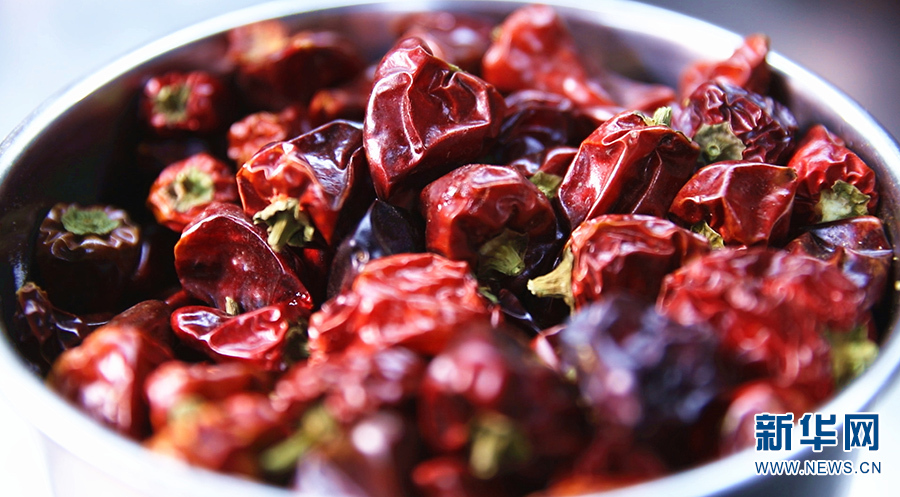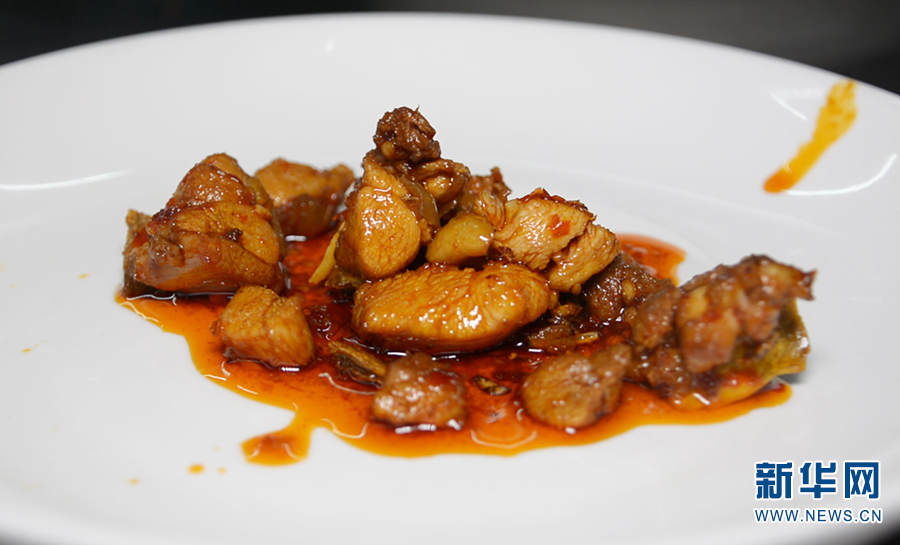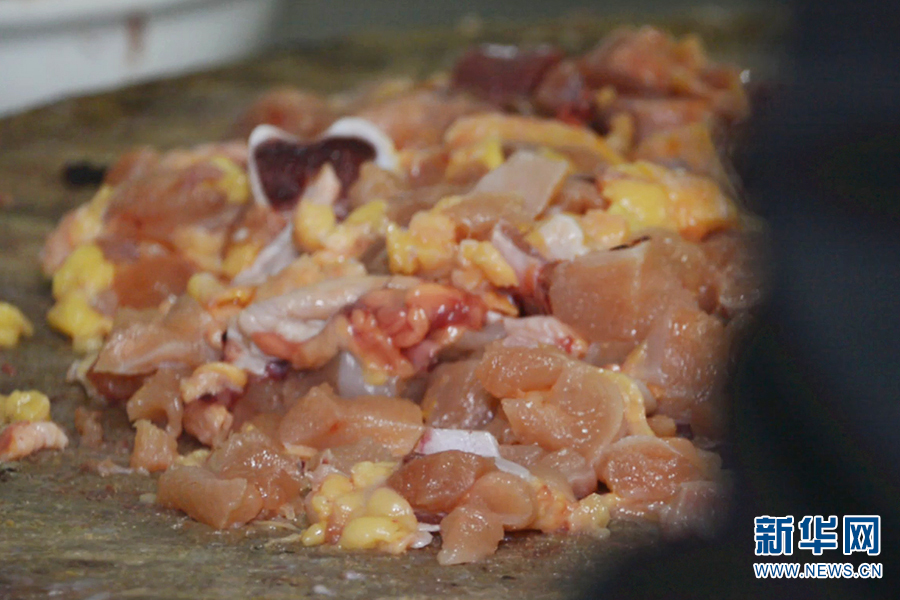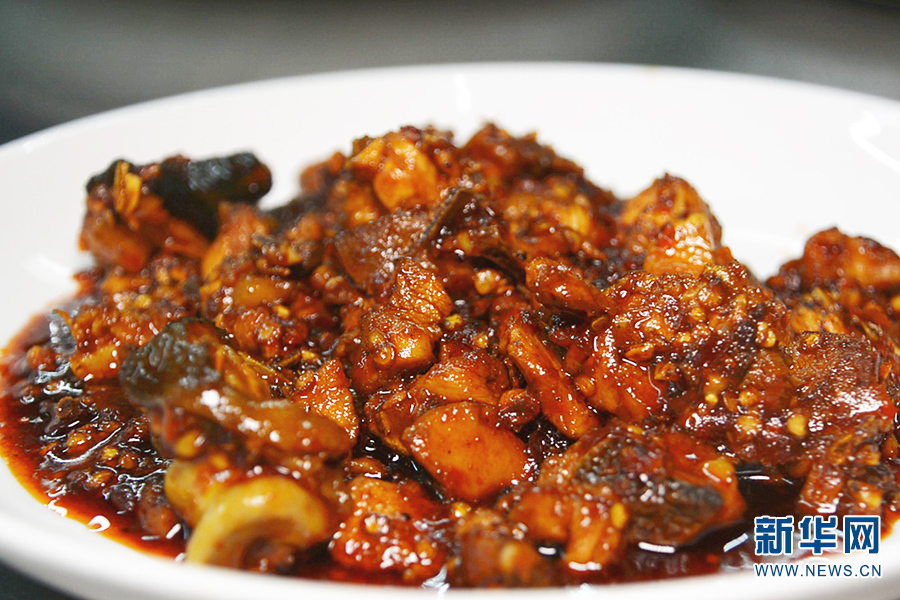Red pepper paste: Key to Zhanyi spicy chicken
The Zhanyi spicy chicken is a dish originating in Zhanyi District, east Yunnan’s Qujing City. With a history of nearly 100 years, the dish is famous for its fine ingredients, intricate cooking procedures and pleasantly spicy taste. Now, a number of restaurants in other Yunnan localities also take the Zhanyi chicken as their specialty to solicit customers.

Zeng Fanguo, a Qujing native, has been running a Zhanyi spicy chicken restaurant for over 20 years in Kunming’s Wuhua District. Apart from his unique understanding to the dish, the special ingredients make the key for Zeng to run the spicy chicken shop with success.
In making the spicy chicken, ginger, garlic, red pepper, oil, salt and monosodium glutamate are all essential ingredients. However, it is the red pepper paste that makes a difference in each Zhanyi chicken restaurant. The so-called glutinous pepper paste is a mixture of ingredients, where ginger and garlic are pounded with dried, cooked red peppers.

Generally, the pepper paste in making Zhanyi spicy chicken involves red peppers or pod peppers grown in Qujing. However, Zeng’s pepper paste is made up of by five pepper species. “The peppers have different tastes, and coupled with ginger and garlic, the pepper paste gains momentum in its spiciness and fragrance,” said Zeng.
Besides the pepper paste, Zeng Fanguo is also quite particular about the chicken itself. “We prefer strong roosters that have superior muscle, and to ensure fresh chicken, we slaughter the rooster for each immediate meal.” While explaining the steps, Zeng cut chicken bulks into pieces. Water-washed and cured with salt, the pieces are to be fried in a wok.

To sum up, the cooking of Zhanyi spicy chicken features great amounts of oil and pepper paste, as well as frequent stirs. To be specific, the vegetable cooking oil was much enough to drown all the chicken pieces, and when the oil was heated, the pepper paste, as much as one third of the volume of the chicken, was poured into the wok. The rapid stirs that followed lasted for ten to fifteen minutes, during which water or plant oil was added if necessary. When the spicy chicken mixture was thick enough, Zeng added to it chopped garlic, ginger, salt and monosodium glutamate to finish the cooking.

Picking up a little piece and putting it into his mouth, Zeng first tasted the chicken full of pepper aromas and then spiciness was spreading in his oral cavity. When served to diners in his restaurant, the dish immensely satisfied their taste buds, with the spiciness felt deep into their mouth corners.
Some of the diners could not afford to waste the tiny amount of leftovers, choosing to take them home. They would add the left chili oil to their noodle breakfast next day, saying the noodles are as tasty as those from top canteens.

Reporting by Xu Hualing (Xinhua); Trans-editing by Wang Shixue